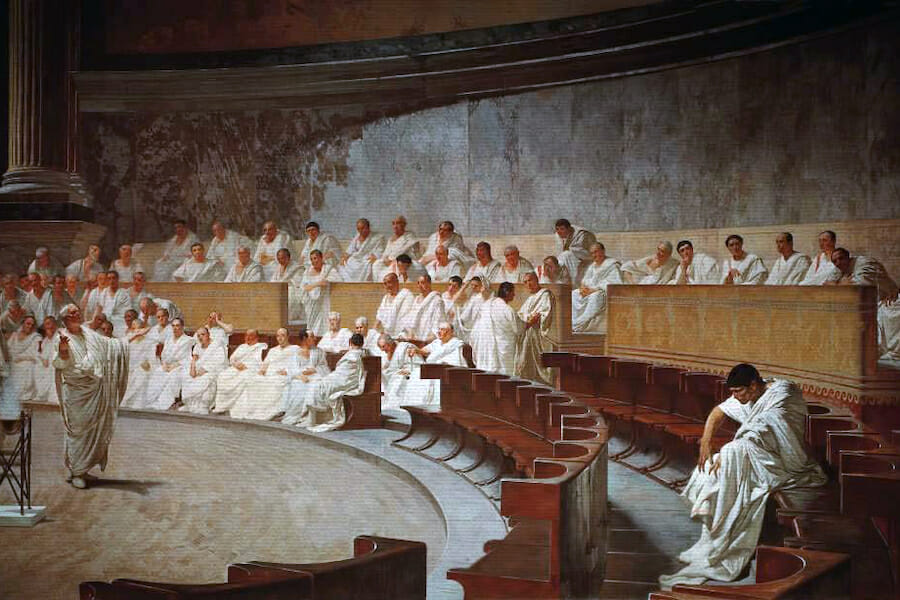
Politics
We Need to Reimagine American Democracy
As President Trump and Republicans in Congress have expressed disdain toward mail-in voting, attention has been drawn to voter suppression and the overall effectiveness of American democratic institutions. The Democratic Party has pursued a few policies for voter reform, including automatic voter registration, laxer ID requirements, increased accessibility to polling places, and designating election day a federal holiday. Voter reform in America aims to increase turnout in elections, however, this focus dismisses the glaring weaknesses of the American democratic process.
Congressional approval ratings are abysmally low, and you have probably heard the phrase “Congress is not doing their job” countless times. The problem is not about the accessibility to the ballot box; it is the inconsequentiality of voting that keeps people home on election day. So how does one solve the systemic issues with Congress that promotes voter apathy? By going back to the birthplace of democracy.
A Civic Duty to Legislate
The United States should have mandatory legislative service. Ancient Athenian citizens were randomly selected to serve a 1-year term in a legislative assembly. This process is known as sortition and has been purported by democratic reformists across the globe. In the American political discourse, sortition has never been fully discussed as a viable replacement to the current legislative infrastructure. Many individuals scoff at the idea, worried that random selection will create a legislature full of inept buffoons. While sortition may seem foreign to many, it has existed in a different sphere for centuries. Jury duty is sortition applied to the judiciary, randomly selecting ten adult citizens to hear a case and decide the innocence of the accused. While there would be some fundamental differences between serving on a jury and serving in a legislature, the fact remains that if average citizens are competent enough to be jurors, legislating should not be out of the question.
Congress’ Representation Problem
The current congressional structure has resulted in an over-representation of older white men. Nearly every historically marginalized group is under-represented. The most egregious offense is women, who, despite making up just over 50% of the U.S. population, only make up 24.2% of the current Congress. Sortition is quite possibly the best solution to this issue, as historically marginalized groups would be statistically more likely to have representation that is proportional to their share of the total population. A diverse and more representative legislature is better suited to address the nuance in racial or gender-based issues. Sortition may be the only way to close the gender and race gap within Congress.
Not only does Congress have drastic racial and gender-based disparities, but the median net worth of a member of Congress is also 12 times more than that of the American household. The economic interests of wealthy congressmen and women will always be in direct conflict with the needs of the average American. Despite CBO reports that income growth for middle-class Americans is less than half the rate of the top 1% of earners, Congress has continued to give massive tax breaks/incentives to the wealthiest Americans. Not only do these wealthy individuals and corporations help fund their campaigns, but a member of Congress is not required to put their assets into a blind trust, leading to an inevitable situation where a member’s financial interests are prioritized over his/her constituents’.
In the past year, Senators Richard Burr and Kelly Loeffler sold millions in stock after being briefed by health officials on COVID-19. Sortition would quell the abhorrent greed so commonly seen in legislatures. A well-designed sortition system would be insulated from corporate bribery: a large legislative body, harsh legal penalties for abuses of power, high paying salaries, and short terms. No system is perfect, and while corruption would seep into a sortition system, its design, unlike the current electoral system, actively opposes wealthy elites who seek to influence the legislative process.
Too Much Pork
The role of a congressional member is paradoxical; elected by a district/state to then legislate on matters that affect the nation as a whole. This results in a phenomenon called pork-barrel spending. Pork is the term given to legislation that solely benefits a specific state or district. It is a form of political capital given to members of more competitive districts/states to aid in their re-election, oftentimes in the form of unnecessary governmental contracts. Over the past decade, Congress has given defense contracts to tank manufactures against the wishes of the Pentagon to benefit certain districts. Pork barrel spending is short-sighted, propping up districts artificially to secure enough votes before the next election. Sortition removes the main incentive for pork-barrel spending: re-election. It allows members of Congress to focus and allot funds based on genuine need without having to worry about dishing out political favors.
Party Polarity
In recent years, disdain towards the two-party system in America has grown. 57% of Americans want a third party. The two-party system is a relic of the past. The winner of an election just needs more votes than their opponent (a plurality), meaning a more consolidated group has a better chance at winning even if the majority of voters do not support them. Some states and localities have implemented ranked-choice voting to curb these tribalistic elections but it is unclear if ranked-choice voting would create robust and threatening third parties. Without any allegiance to a party or specific district, randomly selected congressional members could have more epistemic conversations instead of the gaslighting spewed from current members. Quality debate, and solutions stemming from it, will never occur when legislators have a political playbook they never divert from.
Qualifications: A Classist Misdirection
A major fear of sortition is that unqualified individuals would be selected. Practically all of the current congressional legislators have college degrees and have had careers in politics, business, law, and education (in that order). Despite how it may appear, there are no educational or occupational requirements for legislators. Most legislation is written by staff while the cost is evaluated by the Congressional Budget Office. Legislators are not expected to be experts on every policy area or even one area for that matter. They are given a plethora of tools, information, and labor to help them craft policy. Sortition would select a pool of legislators with more diverse occupational and educational backgrounds. While not fitting under the traditional mold for “qualified” congressional members, there is not a strong argument that randomly selected members would be unable to process information, have a discussion about it, and come to a conclusion.
The implementation of sortition into the U.S. Congress in the near future is an unlikely prospect. Regardless, the idea should not lose any credibility. It is a transfer of power from the elite to the masses. Congressional members would not change the system to one that dilutes their status. If Americans do not believe their vote can change the status quo, nothing will change. Sortition will shift the notion that politics is an elite institution to a sentiment of civic servitude.

